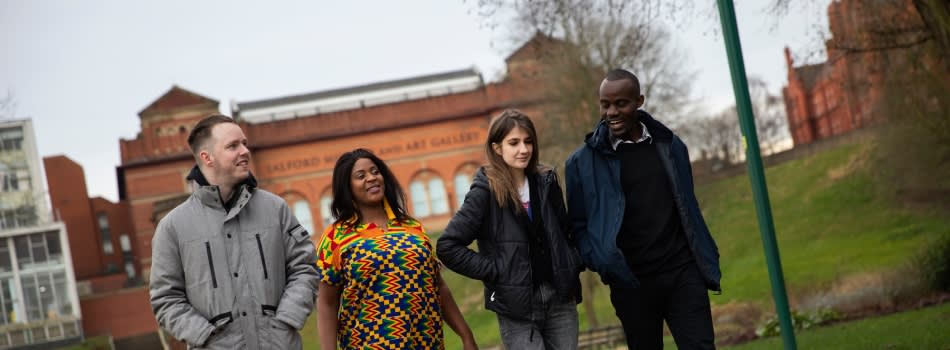Information on this PhD research area can be found further down this page under the details about the Widening Participation Scholarship given immediately below.
Applications for this PhD research are welcomed from anyone worldwide but there is an opportunity for UK candidates (or eligible for UK fees) to apply for a widening participation scholarship.
Widening Participation Scholarship: Any UK candidates (or eligible for UK fees) is invited to apply. Our scholarships seek to increase participation from groups currently under-represented within research. A priority will be given to students that meet the widening participation criteria and to graduates of the University of Salford. For more information about widening participation, follow this link: https://www.salford.ac.uk/postgraduate-research/fees. [Scroll down the page until you reach the heading “PhD widening participation scholarships”.] Please note: we accept applications all year but the deadline for applying for the widening participation scholarships in 2024 is 28th March 2024. All candidates who wish to apply for the MPhil or PhD widening participation scholarship will first need to apply for and be accepted onto a research degree programme. As long as you have submitted your completed application for September/October 2024 intake by 28 February 2024 and you qualify for UK fees, you will be sent a very short scholarship application. This form must be returned by 28 March 2024. Applications received after this date must either wait until the next round or opt for the self-funded PhD route.
----------------
Project description: The needs of society are no longer serviceable using the traditional methods of infrastructure providers and operators. Urbanisation, pressure on global resources, population growth and migration across borders is placing new demands, which traditional methods can no longer adequately serve.
The emergence of data and digital technology has enabled new skills to emerge and offer new possibilities as well as set much higher expectations for the younger generation who have only known lives in the digital age.
The data describing the physical properties of built assets have been well understood and digital methods such as Building Information Modelling are providing levels of access and quality historically unknown. The concepts of human perception are not so well understood with research only being documented over the last forty years or so, but the understanding of human needs and the impact of poor infrastructure and services has now been linked to poor perception and social outcomes.
The initial part of this research has developed and instantiated a methodology which uses data from the delivery and operational phases of a built asset and with the aid of understanding the user community’s perceptions creates intelligence that can optimise the assets performance for the benefit of its users. The instantiation was accomplished by experiment in an educational environment using the “Test Bench” to gather physical asset data and social perception data and using analytics to implement comparative measurements and double loop feedback to identify actionable interventions.
The scientific contributions of this research were the identification of methods which provide valuable and effective relationships between physical and social data to provide ‘’actionable’’ interventions for performance improvement and the instantiation of this discovery through the development and application of the ‘’Test Bench’’.
The major implication has been to develop a testable relationship between social outcomes and physical assets, which with further development could provide a valid challenge to the least cost build option that is taken by the vast number of asset owners, by better understanding the full implications on people’s perceptions and social outcomes. The cost of operational staff and resources rapidly outweighs the cost of assets and the effective motivation and productivity the right environment can provide improved or inhibited performance and social outcomes.
Follow up research proposes to further develop the work undertaken and to address areas that extend beyond this initial research to provide a wider scope and fidelity. In particular, applying and examining the developed “Test Bench” on a variety of built asset types, in addition to exploring other dimensions of interpreting the full definition of human ‘self’ (beyond perception) in relation to how individuals experience built assets, and how this contributes to their wellbeing, happiness, etc. and influences their behaviours.

 Continue with Facebook
Continue with Facebook




